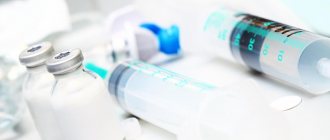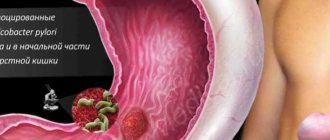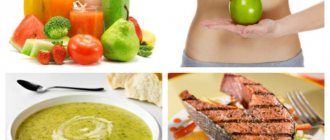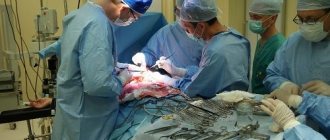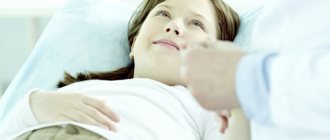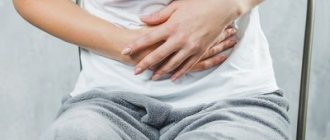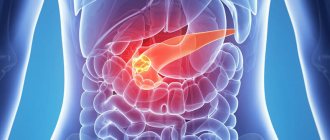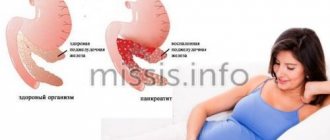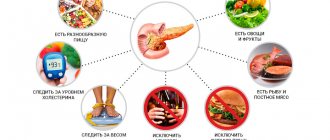Pancreatitis is a serious disease that requires the patient to constantly limit the consumption of certain foods and drinks. After all, any errors in nutrition can cause an exacerbation of the disease and put a person in a hospital bed. But if everything is clear with fatty, fried, smoked foods and alcohol (they are harmful even for a healthy person), then what about coffee? Is it possible to drink coffee for pancreatitis and how can it affect the course of the disease? This is what we will talk about now.
Is it possible or not?
To understand whether it is possible to drink coffee with pancreatitis, a few words should be said about the reasons for its development. This disease is characterized by inflammation of the pancreas and damage to its cells, which reduces the synthesis of digestive enzymes and disrupts the digestion process.
The more a person consumes “heavy” foods, the higher the load on the pancreas and the more its cells are damaged. Therefore, when pancreatitis develops, doctors strongly recommend adhering to a strict diet, even during periods of remission, in order to avoid progression of the disease and the appearance of complications against it.
They recommend giving up all types of fatty, fried and smoked foods, pickles, baked goods, fatty dairy and fermented milk products, alcohol, carbonated drinks, etc., because all of them can provoke an exacerbation of pancreatitis and the occurrence of a painful attack.
As for coffee, it itself cannot provoke the development of this disease. Therefore, every healthy person must decide for himself whether to drink this drink or not. However, it is a completely different matter with people who have a chronic form of pancreatitis, since this drink contains caffeine, which has a stimulating effect on the central nervous system and causes internal organs to work at an accelerated rate. And this is also an additional burden on the pancreas and can lead to exacerbation.
Excessive coffee consumption can lead to exacerbation of pancreatitis
However, this does not always happen. It all depends on the individual characteristics of the patient’s body. Therefore, with the question of whether coffee is ok for pancreatitis or not, it is better to go to the doctor. The thing is that some patients may experience a painful attack even after drinking one cup of coffee, while others drink it constantly and feel quite normal.
But according to doctors, even if coffee is well tolerated by the body, you should not drink it on an empty stomach. And again, due to the presence of caffeine in it, which very quickly activates the digestive processes in the body, increases appetite and stimulates the production of digestive enzymes.
And since at this moment a person does not eat food, these enzymes begin to digest the digestive organs. All this happens slowly and a person may not feel any changes in his condition. But after a while, health problems appear.
Therefore, drinking coffee for chronic pancreatitis and cholecystitis is recommended only after a light breakfast. This will avoid exacerbation of the disease and the appearance of other problems with the digestive system.
Smoking
Everyone probably knows from school that smoking is harmful to health and leads to cancer. But this does not stop smokers: among those who have already been diagnosed with cancer, more than half do not give up their bad habit. This is usually argued by the fact that the worst has already happened, and there is no point in quitting smoking.
Actually, it makes sense. It's never too late to take care of your health. For example, one study found that lung cancer patients who quit smoking immediately after or shortly before their diagnosis lived longer on average. After quitting cigarettes, anticancer drugs begin to work more effectively, the risk of side effects and relapse is reduced, the recovery period after treatment is shortened, overall health improves and more energy appears. We talked about this in detail in the article “If you already have cancer: to smoke or not to smoke?”
What kind of coffee is better to drink?
Since coffee contains substances that irritate the mucous membranes of the stomach and pancreas, it should be drunk in very small quantities. At the same time, it is better to use natural insoluble coffee, since it contains much less preservatives and is considered safer than instant coffee.
But remember that patients with pancreatitis should not drink more than one cup of coffee per day. However, it should not be strong or too hot. Add milk to it, since coffee with milk does not irritate the mucous membranes of the digestive tract as much.
Milk reduces the negative effect of caffeine on the pancreas and reduces the risk of exacerbation of the disease
If 1 cup of coffee a day is not enough for you and you cannot refuse the drink, then you should pay attention to decaffeinated coffee. This includes chicory, which, moreover, is very beneficial for the body. It helps normalize blood pressure and improves the functioning of the cardiovascular system. However, it does not contain enzymes that can negatively affect the functioning of the pancreas.
If you don't like the taste of chicory, drink natural green coffee. It also does not contain caffeine, but contains substances that allow a person to control their weight and avoid the development of diabetes mellitus, which is a frequent companion to chronic pancreatitis.
If you don’t like either chicory or green coffee, you can sometimes allow yourself to drink coffee with milk. But remember that you can only consume it according to the following scheme: first breakfast, and only 20-30 minutes later – a cup of coffee.
Alcohol use in cancer patients
Alcohol is one of the risk factors for the development of many cancers. But there is no strict ban on its use for patients in modern oncology.
It is important to remember two points:
- Risks depend on the volume and frequency of alcohol consumption. There are maximum safe doses: for men 28 grams of ethyl alcohol per day (700 ml of beer, 300 ml of wine or 90 ml of vodka), for women half as much. Of course, this is not a reason to drink the entire “norm” every day, especially if a person has cancer. But nothing bad will happen from one glass of wine.
- Many chemotherapy drugs are eliminated from the body through the liver. She also disposes of alcohol. Thus, when drinking alcohol, the organ experiences a double load. Some anticancer drugs affect mucous membranes. Therefore, if a person suffering from cancer wants to drink alcohol, you should first consult with your doctor.
Read the details in the article “Alcohol for cancer” on the Euroonko channel in Yandex Zen.
What else do you need to know?
If you have frequent flare-ups of pancreatitis, you should keep a diary in which you will need to record all the foods and drinks you consume during the day. This will allow you to accurately determine what exactly provokes an exacerbation and whether coffee is a provocateur. If yes, then, of course, you will have to give up this drink forever.
Remember that if you tolerate coffee well, you can drink it only during a period of stable remission. In moments of exacerbation, it must be removed from the diet. Moreover, you will have to abstain from it for 1-2 months after the attack. 4-5 weeks after the exacerbation has stopped, regular coffee can be replaced with green or chicory. As already mentioned, they do not contain caffeine and are the safest for the pancreas.
If acute pancreatitis develops, it is also prohibited to consume this drink until the patient’s condition is completely normalized. And after that you will need to adhere to all the above rules for drinking coffee. Because if these rules are neglected, the disease will begin to progress and can easily take a chronic form.
To summarize, it should be said that coffee for pancreatitis can be consumed only if it is well tolerated. If after one cup you experience discomfort in the right hypochondrium or stomach, you will need to give up this drink in favor of your health.
But despite the fact that coffee has no strict contraindications for chronic pancreatitis, it should be consumed only after consultation with a specialist. If he allows you to drink this drink, you can drink it, but carefully, always listening to the “bells” of your body.
Visiting baths and saunas
In the last century, in oncology there was a strict ban on visiting baths and saunas for patients and people who are in remission. It was believed that high temperature provokes the development of cancer and promotes the spread of malignant cells in the body. It is now known that everything is not so simple. Temperatures above 40 degrees increase the sensitivity of tumors to drugs and help destroy them. This principle is even used in modern oncology clinics - for example, during hyperthermic intraperitoneal chemotherapy (HIPEC).
Of course, there is no call to treat cancer with a bath, as some traditional healers suggest. Cancer patients should be treated in specialized oncology clinics, in accordance with current protocols. And after completion of treatment, no one forbids visiting baths, saunas and spas.
Some people are afraid that high temperatures in baths and saunas can cause skin cancer. There is no evidence for this. Only tanning beds that contain ultraviolet rays are dangerous for the skin. High temperatures increase the risk of developing skin cancer only if they cause severe burns.
Why can’t you self-medicate for cancer?
Self-medication for cancer is strictly contraindicated. Cancer is a fatal disease; vitamins, dietary supplements, herbal medicines and other methods of traditional, alternative medicine will not help cope with it. Only doctors in specialized oncology clinics can provide effective assistance. By self-medicating, the patient loses precious time - and the cancer continues to progress. If a malignant tumor is diagnosed in the early stages, it can often be removed and remission achieved. At an advanced stage with metastases, cancer usually cannot be completely removed, but this is not a reason to refuse treatment, because it helps to prolong life and relieve the patient from painful symptoms.
Book a consultation 24 hours a day
+7+7+78
Is it possible to give cancer patients massage?
Oncological disease is not an absolute contraindication to therapeutic massage. It does not contribute to the spread of cancer cells in the body, there is no scientific evidence for this. In general, cancer patients can visit massage therapists; there are only a few small restrictions:
- You must first consult with your doctor.
- Deep massage is contraindicated for cancer patients.
- Avoid visiting dubious massage parlors: use the services of certified massage therapists.
- When performing a massage, it is necessary to take into account the general weakened state of the patient’s body, the effect of chemotherapy and radiation therapy, as well as all complications and associated pathologies.
- Massage should not be done on parts of the body that are undergoing radiation therapy if there are wounds or other damage to the skin.
- On limbs with lymphedema (swelling as a result of impaired lymph outflow after removal of lymph nodes), you cannot do a classic massage, but you can use a special lymphatic drainage massage to reduce swelling.
